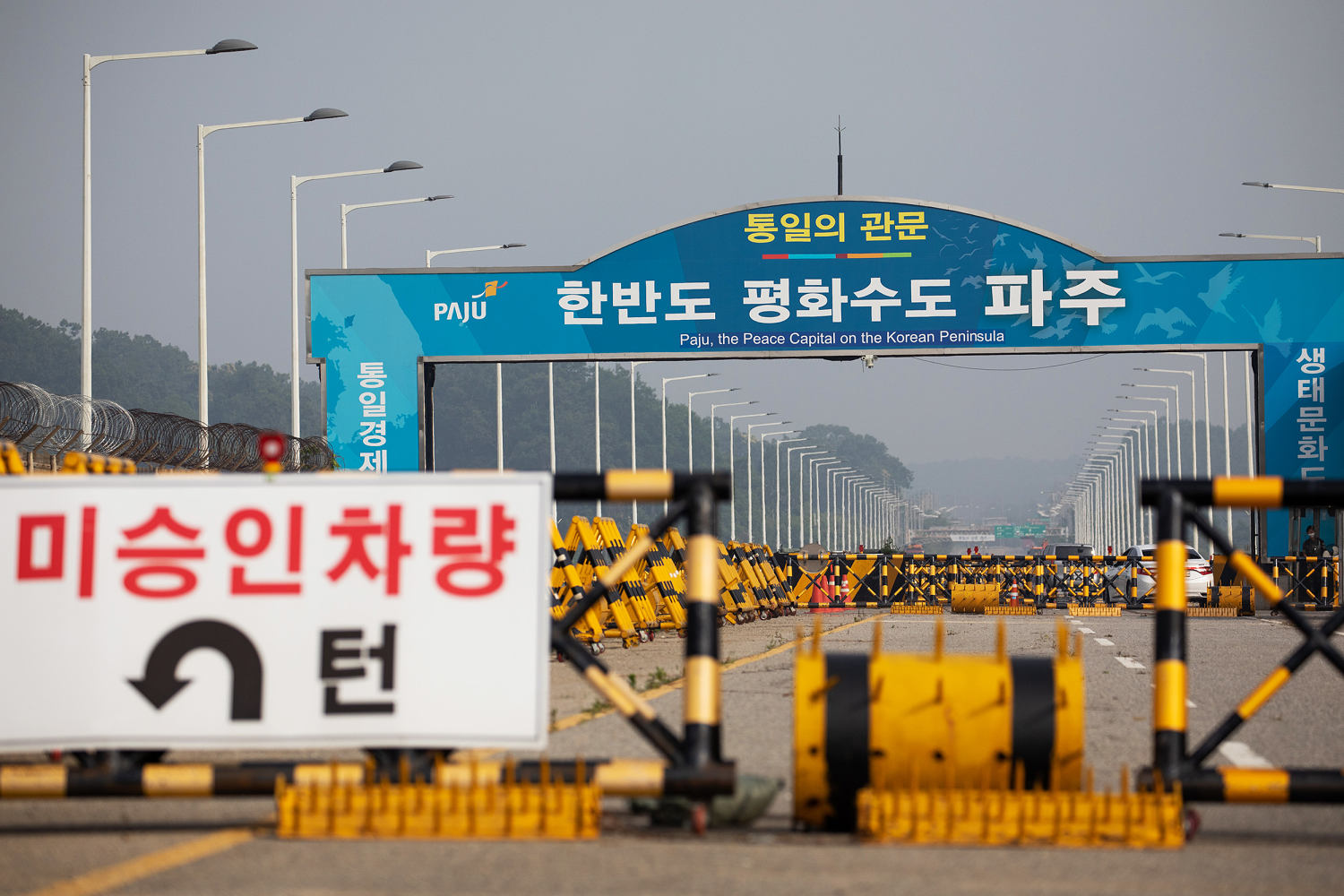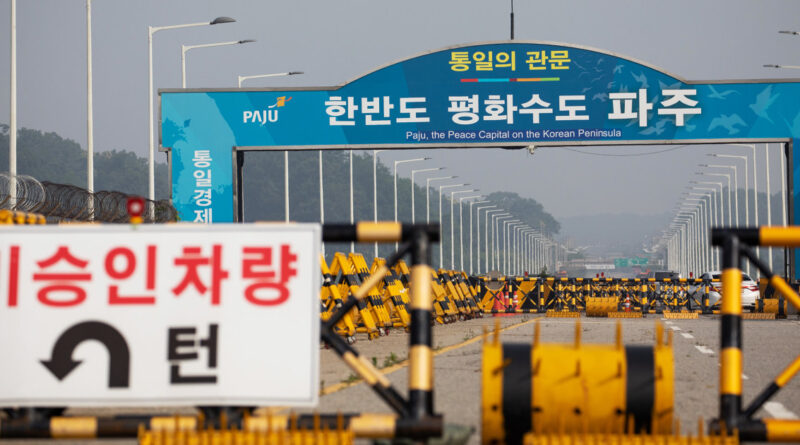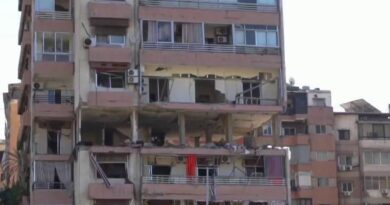North Korea to blow up cross-border roads with the South, Seoul says

SEOUL, South Korea — North Korea is getting ready to blow up roads that cross the heavily militarized border with South Korea, Seoul said Monday, amid an escalating war of words after the North accused its rival of sending drones over its capital, Pyongyang.
North Korean troops were working under camouflage on the roads on their side of the border near the west and east coasts that are likely preparations to blow up the roads, possibly as early as on Monday, South Korea’s military spokesman said.
North Korea on Friday accused South Korea of sending drones to scatter a “huge number” of anti-North leaflets over Pyongyang, in what it called political and military provocation that could lead to armed conflict.
Lee Sung-jun, a spokesman for the South’s Joint Chiefs of Staff, declined on Monday to answer questions over whether the South Korean military or civilians flew the drones.
In another fiery statement targeting South Korea and the United States, Kim Yo Jong, the powerful sister of North Korean leader Kim Jong Un, said Monday that the South Korean military was “clearly” to blame for the drone intrusion, and that Washington should also be held accountable.
“If the sovereignty of a nuclear weapons state was violated by mongrels tamed by Yankees, the master of those dogs should be held accountable for this,” she said via the KCNA state news agency, referring to Seoul and Washington.
The North Korean army said last week that it would completely cut roads and railways connected to South Korea and fortify the areas on its side of the border, KCNA reported.
North Korea over the weekend warned of a “horrible disaster” if South Korean drones were again found to be flying over Pyongyang. On Sunday, it said it has put eight fully armed artillery units at the border on standby to open fire.
South Korea’s military has said its refusal to answer questions on the drones is because addressing what the North has alleged would be to get drawn into a tactic by Pyongyang to fabricate excuses for provocations.
South Korea has sought to strengthen its anti-drone defenses since 2022, Lee said, when five North Korean drones entered its airspace and flew over the capital, Seoul, for several hours.
Lee Kyoung-haing, an expert in military drone operations at Jungwon University, said civilians would have no trouble getting drones with ranges of about 186 miles, the round trip from the South to Pyongyang, with light payloads such as leaflets.
Other experts say that even if civilians sent such drones from the South across the border, it might have been difficult to do so without the government’s permission or it was possible that authorities failed to detect and block them.
On Sunday, North Korea’s defense ministry said the drones, which it said were detected over Pyongyang on three days earlier this month, were the kind that required a special launcher or a runway and that it was impossible for a civilian group to set them off.
The two Koreas are still technically at war after their 1950-53 war ended in an armistice, not a peace treaty.
The cross-border links are remnants of periods of rapprochement between the countries, including a 2018 summit between the leaders when they declared there would be no more war and a new era of peace had opened.
North Korea has reintroduced heavy weapons into the Demilitarized Zone border buffer and restored guard posts, after the sides declared a 2018 military agreement aimed at easing tensions no longer valid.





